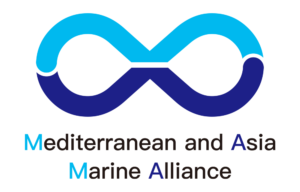Development and Vision of Taiwan’s Marine Affairs -Exclusive Interview with Dr. Ching-Ta Chuang
Dr. Ching-Ta Chuang ,Emeritus Professor of National Taiwan Ocean Universty, Chairman of OISCA Taiwan
Specialized fields:
Marine economics & leisure industry, marine sociology and community development, island sustainability & marine ecological conservation, and marine environmental policy
Experience:
Former Vice Chairman of the Ocean Affairs Council
The 21st century is the century of ocean thinking, and it is evident that countries around the world are moving towards the ocean to form a wave of blue revolution. Still, only those who can make good use of ocean resources can be “Ocean country.” In the past, Taiwan was restricted by martial law and policies that caused its people not to be pro-sea. Only after the government established the Ocean Affairs Council in 2018 did it actively devote itself to marine development, which is a bit slow to the international trend of marine development.
The world’s marine industry is currently worth about US$3 trillion, making it the fifth-largest economy in the world. The GDP accounts for about 5% of the world’s GDP and is expected to grow at an average of 3-5% per year in the future. Taiwan’s marine industry has an annual output value of about US$20 billion, with the shipping industry accounting for the highest percentage, followed by the fishing industry and marine tourism and recreation. In recent years, the overall value and output of Taiwan’s coastal fishing industry have declined due to climate change and changes in the marine environment, impacting the fishing village economy.
The community construction of fishing village communities is based on the concept of a blue economy, transforming fishing villages and combining tourism and commercial resources to establish autonomous management and sustainable operation of cultivated fishing areas. In the future, rural and fishing villages will be transformed from production roles to living, while factories will be transformed into production units. The offshore wind farms in Taiwan can also be transformed into marine pastures and artificial reef diving sites for sustainable use and development after the decommissioning of the turbines, following the example of the United Kingdom.
He concluded by quoting Daisaku Ikeda, president of the Soka Gakkai International, who said, “The ocean brings us together, not separates us,” and encouraged people to become more involved and concerned about ocean affairs so that Taiwan can become a true maritime nation because of the sea.
MAMA also interviewed Professor Ching-Ta Chuang about the recent news of Japan releasing nuclear wastewater into the ocean. Professor Chuang said that perhaps Japan is just probing the wind to see what the international opinion is on this matter and that there may be variables in the recent international public pressure. But 2 years later, if it really wants to discharge into the sea, to discharge the nuclear polluted water must also meet the standards of the International Atomic Energy Commission, we do not need to panic too much at the moment.
Wen edited this interview. Please don’t hesitate to contact Wen (wen@liantat.com.tw) if you have any further questions.

